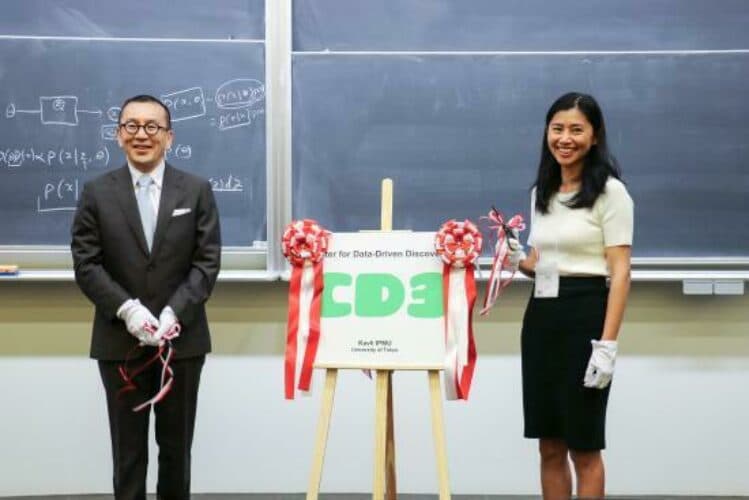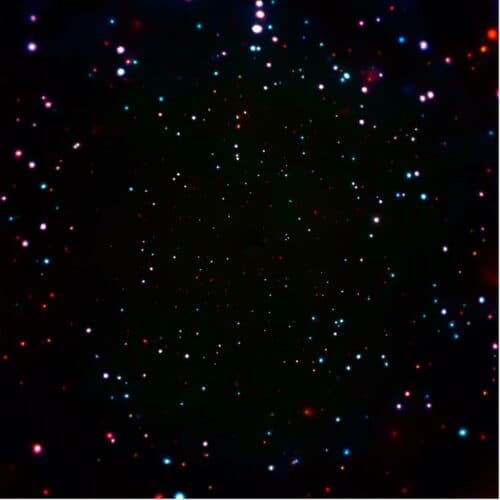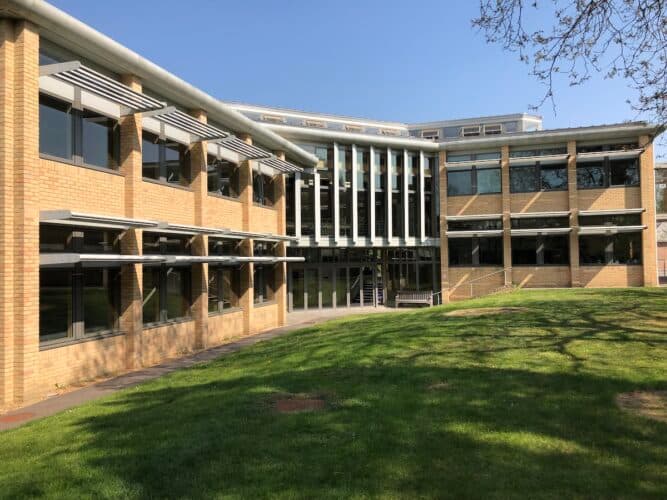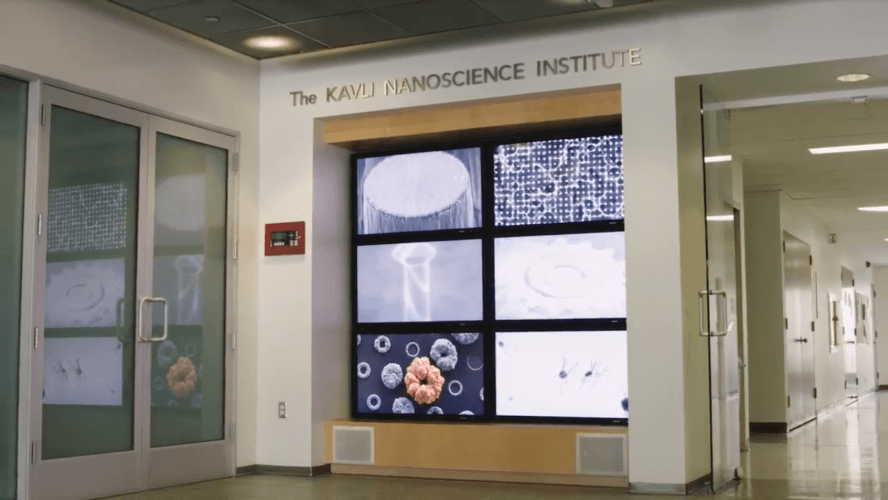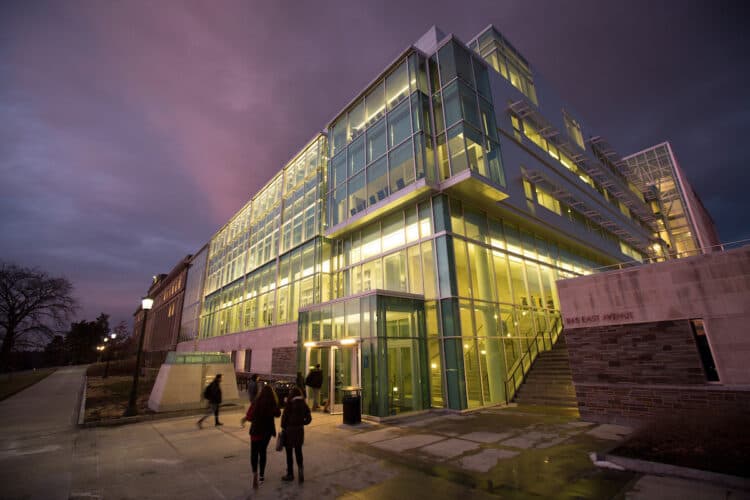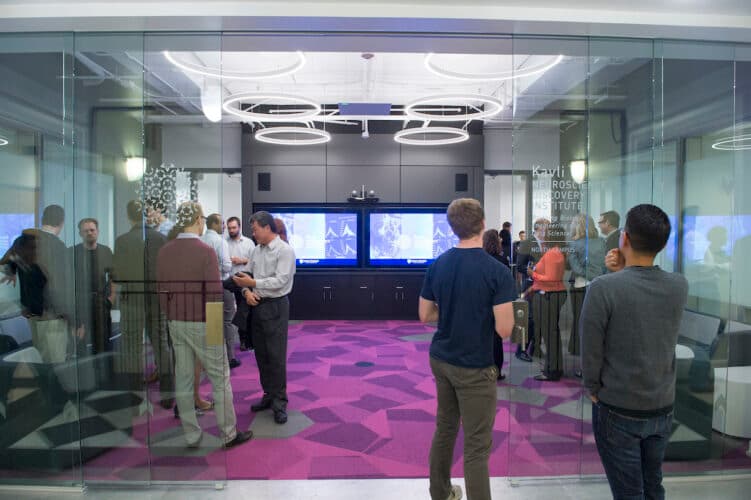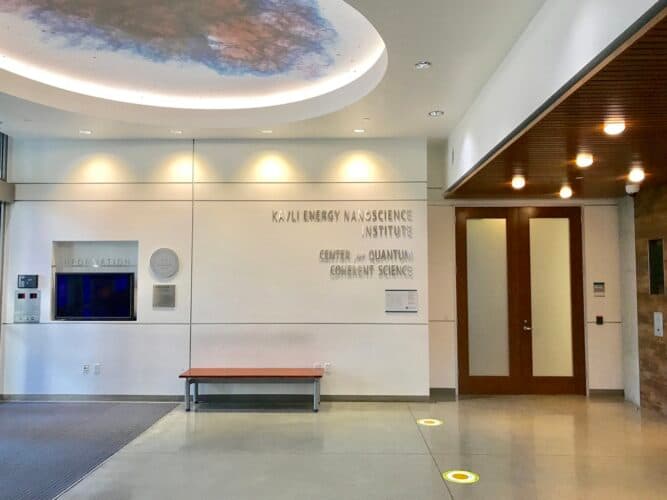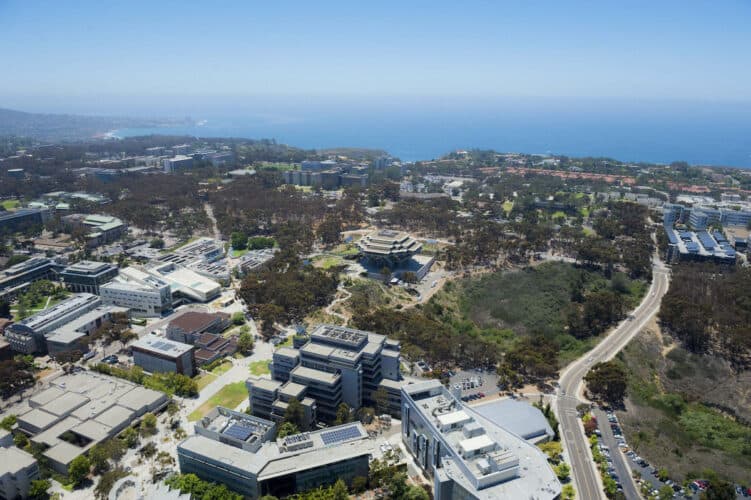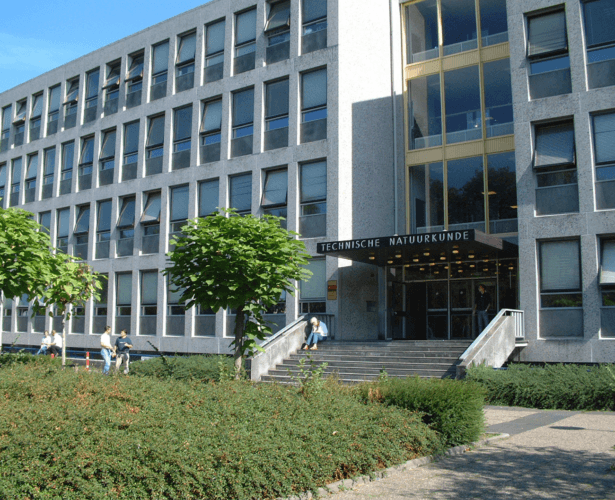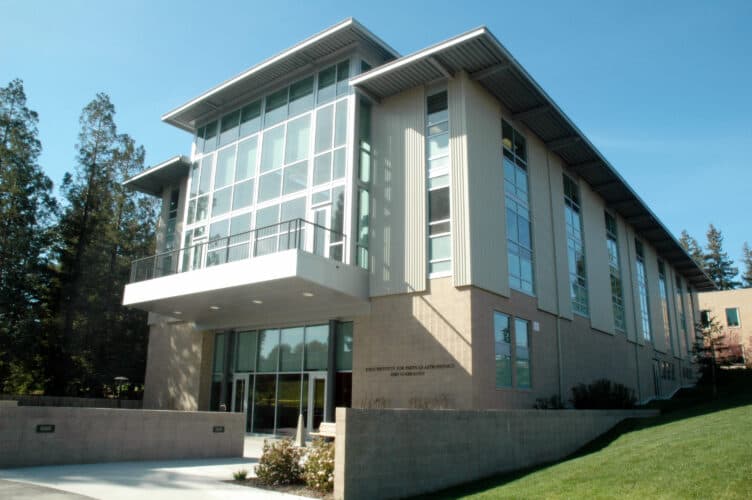University of TokyoKavli Institute for the Physics and Mathematics of the Universe
Seeking answers to profound problems in cosmology with a unique combination of physics, astronomy, and mathematics
An institute within the University of Tokyo, the Kavli Institute for the Physics and Mathematics of the Universe (Kavli IPMU) brings together a wide range of researchers – from pure mathematicians and string theorists to experimental particle physicists and observational astronomers – in a truly multi-disciplinary and collaborative environment. First established in 2007 under a Japanese government initiative as the Institute for the Physics and Mathematics of the Universe (IPMU), the Institute received an endowment from The Kavli Foundation in early 2012 and became the Kavli IPMU.
FOUNDED 2012
Leadership
Jun'ichi Yokoyama
Director, Kavli Institute for the Physics and Mathematics of the Universe
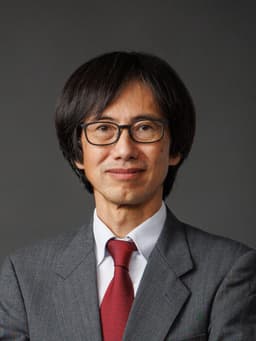
Hiroaki Aihara
Deputy Director, Kavli Institute for the Physics and Mathematics of the Universe

Yukari Ito
Deputy Director, Kavli Institute for the Physics and Mathematics of the Universe

Masahiro Takada
Deputy Director, Kavli Institute for the Physics and Mathematics of the Universe

Mark Vagins
Deputy Director, Kavli Institute for the Physics and Mathematics of the Universe

AREAS OF INQUIRY
- MATHEMATICS: The Kavli IPMU regards pure mathematics research as fundamental to its quest to understand the universe. The Institute’s mathematicians, for example, are working on new geometric tools to help string theorists develop a new physical description of the universe that includes six extra dimensions – in addition to the four dimensions of space and time that are familiar to us. Other work in advanced algebra aims to develop laws that govern that description. On the other hand, mathematicians use tools developed in string theory to attack their own problems.
- HIGH ENERGY THEORY: The pursuit of a unified theory that explains both general relativity, which describes the physics of gravity, and quantum mechanics, which describes the physics of elementary particles, may lie in string theory, which postulates that matter at its most fundamental is comprised of vibrating strings. The close relationship between string theory and mathematics has inspired advances in both fields, and collaborations at the Kavli IPMU are ongoing.
- COSMOLOGY: Recent progress both in theory and observation has led to a more precise and quantitative understanding of the universe from its very early stages to today. This has caused tension among observational data and between theory and observations. Kavli IPMU researchers are tackling these problems to look for a more comprehensive picture of the universe.
- EXPERIMENTAL PHYSICS AND OBSERVATIONAL ASTRONOMY: The Kavli IPMU is involved with a wide range of experimental and observational projects.
- Cosmic Microwave Background Projects: The LiteBIRD satellite will probe the physics of the very early universe, and the Kavli IPMU is responsible for key measurement instruments as well as hosting the data science center.
- Kamioka Projects: This includes the gadolinium project at Super-Kamiokande, T2K, and the construction of Hyper-Kamiodande. The addition of gadolinium to the Super-Kamiokande water tank – the Kavli IPMU initiative – will improve its efficiency significantly and enable detections of supernova relic neutrinos.
- Survey Astronomy: Hyper Suprime-Cam (HSC) is a gigantic charge-coupled device camera mounted on the Subaru Telescope atop Maunakea, Hawaii. Kavli IPMU is a leading institution for the HSC project. With HSC, Kavli IPMU astronomers have already gained significant insights into the nature of dark matter and dark energy through gravitational lensing studies. Additionally, the Kavli IPMU is leading an international collaboration to build the Prime Focus Spectrograph (PFS). Once completed, it will allow simultaneous spectral observation of distant galaxies across a wide field of view.
Featured News
Read more about the Kavli Institute for the Physics and Mathematics of the Universe
see all newsNew instrumentation from the Kavli Institute for the Physics and Mathematics of the Universe will help scientists study the early history of the universe
Mar 24, 2025
Astrophysics Profile
Jun'ichi Yokoyama, the new Director of the Kavli Institute for the Mathematics and Physics of the Universe, shares his vision for the trailblazing multi-disciplinary research center
Jan 23, 2024
Astrophysics Profile
Kavli astrophysics institute researchers have leveraged the might of JWST to see the previously unobservable dim galaxies that host bright quasars
Jul 10, 2023
Astrophysics Profile
Jia Liu, inaugural director of Kavli IPMU's new center, brings creativity and purpose to the looming challenge of big data
Jun 22, 2023
Astrophysics Research Highlights
Research Highlights from Kavli Astrophysics Institutes
Apr 06, 2023
More Institutes
At Kavli Institutes around the world, scientists explore the frontiers of science in the fields of astrophysics, nanoscience, neuroscience and theoretical physics.
See all institutesMassachusetts Institute of Technology
Astrophysics
University of Cambridge
Nanoscience
University of Oxford
Theoretical Physics
University of Chinese Academy of Sciences
Nanoscience
California Institute of Technology
Theoretical Physics
University of California, Santa Barbara
Cornell University
Neuroscience
Columbia University
Neuroscience
Yale University
Neuroscience
Johns Hopkins University
Astrophysics
Peking University-Beijing
Neuroscience
Rockefeller University
Nanoscience
University of California, Berkeley
Neuroscience
University of California, San Diego, and the Salk Institute for Biological Studies
Nanoscience
Delft University of Technology, Netherlands
Neuroscience
Norwegian University of Science and Technology
Stanford University
Astrophysics
University of Chicago
Neuroscience
University of California, San Francisco


